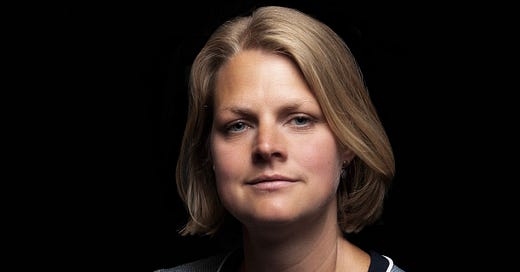Banana Republic
What electoral lessons can we take from Rwanda, Trump in the US and the BBC in Somerset? We take a look at some disturbing themes as General Election 2024 moves up a gear.
Dear readers
Today’s edition of Somerset Confidential® is for our paying subscribers. Much of what we do we see as a public service. But we still have bills to pay. And as we strive to do more, we have more bills to pay. You take the point?
We think there is a lot to do. Today’s article clearly demonstrates that. No-one else is asking these questions or making these challenges to those in authority. If you’d like to help us do it you can do so here:
So as well as our free service we offer a paid subscription which costs £30 a year. That’s 58p a week, less than the price of Twix chocolate bar!
For that you get:
4 extra articles a month
The chance to have your say, to comment argue and debate our articles
full access to our back catalogue (it is getting bigger every week)
and the satisfaction of supporting one of Somerset’s most innovative journalism projects.
We like to think of it like this. Support us – and you are supporting a better governed Somerset. You can join and support us here….
Thank you
Andrew Lee - editor
Banana Republic
What are the raw ingredients for a Banana Republic?
A dictatorship maybe? But these days complete control can be achieved with more subtle means. The pretence of elections. Seeking legitimacy through the ballot box while making sure that the result will be safely secured before election day.
The raw ingredients are not complicated. Perhaps removing all serious opposition candidates before the election. Or making sure that the media when reporting on elections, remove undesirable candidates from the debate. Or in case things go terribly wrong, insisting that the results of the election are fraudulent and should not be accepted and in extremis, organising the overthrow of the “elected” party.
These things may be, in the public mind, something that happens in obscure African countries, maybe in South America or the jungles of south east Asia. But what does modern Britain have to say about banana republics? Do we laugh at them? Or espouse their methods? Or at best fail to condemn those methods?
Rwanda
Most people have heard of Rwanda today, even if they hadn’t two years ago. Rwanda is the country that the Conservative Party tell us is safe, properly ordered and run and is appropriate as a destination for refugees.
It may be some of those things. We are told it is safe. Indeed the fact it is safe is now a matter of legislation as the Prime Minister had it written into his Rwanda law.
But is it? What do we know about the country and the way it is governed? What values are we endorsing by stating it is “safe”. What do those values say about our values?
Rwanda is also about to go into a General Election. A former military officer first elected in 2000, Paul Kagame is not president for life, but for most Rwandans there has never been any other president. More than half of Rwanda’s 13.5 million population are aged under 24.
The Rwandan election is, like many around the world, being conducted with the appearance of being a fully democratic exercise.
Except that, just as the last time in 2017, it isn’t. Opposition candidates have been carefully vetted. The opponent most likely to provide a serious challenge to Mr Kagame, Diane Rwigara, has been banned from taking part. Again. She was also prevented from running in 2017.
Diane Rwigara, has been banned from taking part
Mr Kagame does not like to lose. But he is not leaving things to chance.



